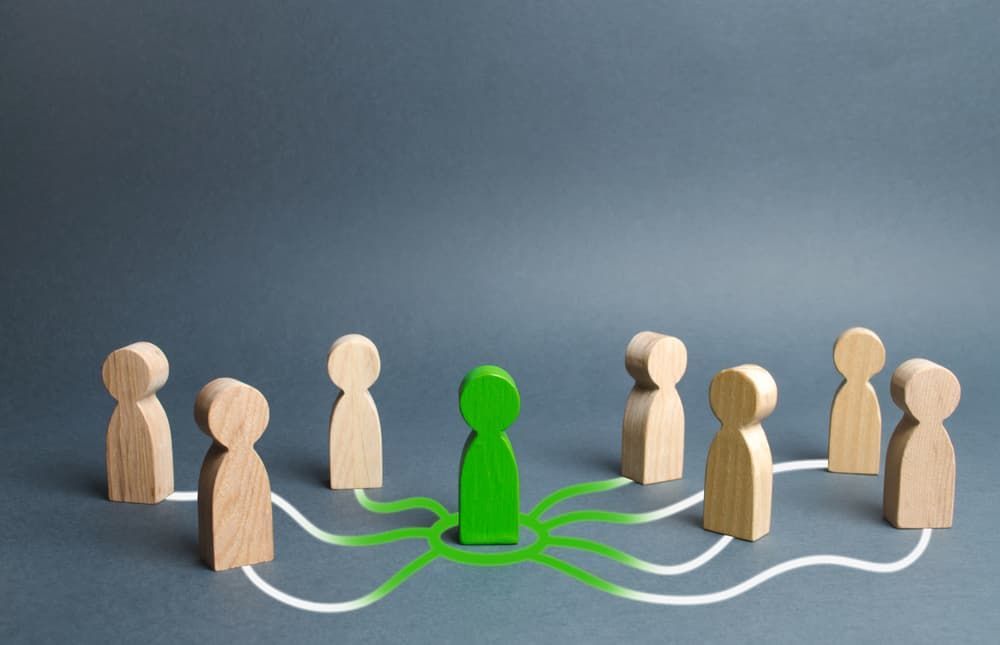A Counselor's Ponderings

In a time where the pace of life races unceasingly, the need to prioritize mental well-being has become more critical than ever. This guide written by Jackie Cortez, courtesy of FaithWorks Counseling, steps outside the bounds of traditional approaches, offering a collection of innovative and impactful strategies to bolster mental health. It serves not just as an exploration of alternative methods, but as a beacon for those seeking to navigate the complexities of modern mental wellness with fresh and effective techniques. Digital Detox Initiate your journey to mental wellness by reclaiming time from the digital realm. Curtailing screen time not only reduces sensory overload but also reorients focus towards enriching real-world interactions. This deliberate shift away from virtual engagements allows for the rediscovery of the simple joys and connections that physical presence fosters, creating a more balanced and serene mental state. The Power of Self-Reflection Venture into the realm of self-reflection, a powerful tool for uncovering your passions and life's purpose. This practice, whether through journaling, meditation, or guided sessions, enables an intimate conversation with oneself. It’s a journey of discovery that fosters authenticity and personal growth, leading to a more aligned and fulfilling existence. Career Transformation Reflect on the significant benefits a career shift can offer for enhancing mental well-being. Pursuing further education, particularly through flexible online programs, not only reignites one's passion but also unveils new avenues for growth and opportunity. Delving into the curriculum of a cybersecurity degree, for instance, presents a fascinating blend of challenge and learning as you learn about how to protect information from hackers and cyberthieves. With an online program, you can learn on your own time and work on skills that will allow you to investigate and resolve data breaches, which will open doors to high-paying professions. Embrace Natural Supplements Natural supplements can play a vital role in enhancing mental health. Collaborating with healthcare professionals to identify supplements that align with individual needs introduces a complementary approach to traditional mental health practices. This natural path offers a holistic perspective, aiding in achieving a balanced mental state. Mastery of Mindful Breathing Incorporate the art of deep breathing exercises into your daily routine. These simple yet profound techniques are potent tools in alleviating stress and enhancing relaxation. They pave the way to improved mental clarity and focus, serving as a foundation for better mental health and a more centered life experience. Once you learn how to perform deep breathing exercises, you can do them just about anywhere, allowing for on-the-spot stress relief. Monthly Goal Setting Elevate personal motivation and self-esteem by setting and tracking monthly goals. This structured approach to personal development not only fosters a sense of achievement but also provides clarity and direction in one's growth journey. The act of setting and achieving goals is an empowering process that fuels the drive for continual self-improvement. Join a Book Club Stimulate your mind and foster social connections by participating in a book club. This engagement provides a unique platform for intellectual exchange and personal interaction, enriching one's mental landscape. The act of discussing and dissecting literature with others can broaden horizons and deepen understanding, offering a refreshing escape and mental stimulus. Volunteer for Fulfillment Committing time to volunteer efforts not only benefits individual and communal health but also nurtures a deeper connection with society. Participating in altruistic endeavors through local nonprofit organizations fosters a robust sense of purpose and fulfillment. You might even decide to form your own nonprofit in order to better serve your community. Take a look at online resources that can help you with the process so that you’re legally compliant; for instance, you’ll need to lay out your nonprofit’s bylaws, which detail how voting works and how the organization will be governed. Elevating mental health in today's fast-paced world requires a multifaceted approach. By adopting some of these strategies, you can focus on your overall wellbeing while also moving forward in your career or helping others. These innovative approaches provide a fresh perspective on mental wellness, paving the way for a balanced and enriching life. FaithWorks Counseling offers therapy for teens and adults who are looking for help with depression, anxiety, and other life struggles. Have a question about what a session entails? Get in touch today.

Counseling is a wonderful and unique profession. Coming alongside those who are suffering or struggling is an honor and a true blessing. Paul tells us in Romans 12:15 “Rejoice with those who rejoice, weep with those who weep” . It is truly a pure form of love and compassion for God’s creation. Though taxing at times, having been able to sit with someone to hear their experiences and struggles, and being a calming, validating, and balancing influence in their life is a fulfilling experience. Seriously though, why did you become a counselor? My journey to becoming a counselor dates back as far as elementary age. As a young child, I often gravitated towards those struggling. I had an act for perceiving other’s pain and even being able to come along side and feel that pain with them. The household I grew up in was very middle class, supportive, and pretty average. Remembering back, I can recall connecting with kids who were probably not always my parent’s first choice for me to be friends with. Kids struggling with dysfunctional families, substance abuse in the home, broken homes, and so on. The kid in class that others thought was “weird” or “gross”, I would give a chance to. It’s not like I have a personal history that makes these experiences overly relatable either -- at least I don’t think… I wasn’t “weird” or “gross”, was I…? I think I just had no bias, felt for people, and thought everyone deserved a fair shot. The first time I began putting a name to what I was… in to? I s that the right wording, that kind of sounds like I was dabbling with a drug or exploring explicit content… Interested in. There we go . The first time I began putting a name to what I was interested in was around age 12 when I picked up and read my first psychological book. It was Control Theory by William Glasser, a pretty old school psychiatrist popular in the early ages of psychology, in the 1950s. Looking back at this book, which I still own, it is drier than the bark on a tree. But the concept was there and it was fascinating to me. Being able to learn to control what we are feeling, the behaviors, and even changing one’s experience... I was hooked. So I went on to be a counselor and lived happily ever after... Actually… I did what most developing adults to be do and changed my direction a handful of times, despite having a longstanding interest in psychology. I thought I’d like to be an architect, then I remembered my artistic talent and vision is that of a rodent’s. It would be pretty cool to be a teacher I thought, but then I remembered that I thought most of the stuff taught in school was pretty much worthless in the long run. Maybe something with math? Oh wait, I almost failed math several times. Okay fine, I’ll be a photojournalist! Still love the idea but I like having a job so not my route! How about some first hand experience? About mid high school my interest in counseling and psychology was solidified when I had my first personal experience with anxiety. I began experiencing panic attacks around age 16, and on a scale of 1 to 10 in terms of fun, they were a solid negative 4. My first attack was following a tennis match, after I arrived home around 9pm. I felt the still recognizable tingle in my chest and slightly off heart rate that signaled my imminent demise as the first 16 year old to die of a sudden heart attack. Heart rate rose, breathing quickened, I asked what the heck is going on, decided I’d take albuterol for supposed asthma, and found that the albuterol worked right as it rose my heartrate to another level and made my attack worse. Surprise! I’m still alive today and did not have a heart attack. These episodes did prompt a several year long journey into the mental health field on a personal level. The panic attacks continued, but decided they would link themselves to a long dormant separation trauma from childhood that is way too big of a story to include here today. Long story short, I would have panic attacks or come close to having attacks, several days of the week for months. I was trying different medications, talking to different people, and learning about psychology in a way I didn’t plan on. Ultimately the attacks faded as I learned how to sit with them and practice mindfulness on my own, along with medication, however the anxiety itself stayed. I went through a slew of different experiences with it ranging from general anxiety, to not being able to go to sleep for months while having to work full time after graduating, what a blast that was . As time went on and I continued taking a medication that worked, the anxiety decreased and stabilized to a point that it is nonexistent, or in the most like hearing a mosquito flying around your ear, which arguably is still pretty annoying at times . Living the dream Through my own struggles with anxiety, considering my life experiences, and continuing to dig into the psychology world, I made the decision to pursue a career helping people going through their own struggles with family, anxiety, and other conditions that I learned more about in the years to come. Here is a Sparknotes summary on the rest ( does anyone actually know what Sparknotes is anymore? ). I went to community college, undergraduate in psychology, masters in counseling, worked a few jobs in the counseling field, and loved it as much as I could ever hope . Ultimately I was able to gain experience and start my own practice with some more pushing from God -- he's pretty good at that -- and here I am today. God was not joking when he said “I know the plans I have for you, plans to prosper you and not harm you, plans to give you hope and a future”. It may have felt a little extreme there for a while, but now as a 29 year old version of myself who has a counseling private practice and is able to help others daily, I wouldn’t change a thing. Stay tuned for more posts from me as I explore other areas of my life, different counseling/psychology ideas, and maybe some random fun stuff along the way.


